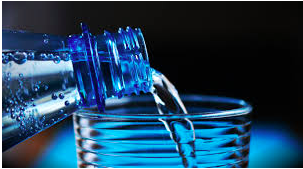In a world where clean drinking water is a challenge, water purification is essential for a healthy living. There are a number of ways to purify water, but the point is, can all contaminants be eliminated? Water is a source of minerals, including copper and magnesium, which is healthy, but when they react with other minerals, they can form deposits and make water unfit for drinking. There are hidden dangers in the form of lead and copper, and you will never want to consume those disinfectants too!
Why should you filter that water?
It’s simple; water can taste and smell bad with all these impurities, and all those bacteria, dirt particles and chemicals can seriously cause illness. Here’s a list of things that get removed when you filter your water,
- Sediments: Home water filters use replaceable paper filters to separate sediments, silt, and tiny particles of clay, that may be present in water and can pose threats to your health.
- Pathogens: Giardia intestinal, is a microscopic parasite that can cause serious illness and diarrhea that can even last up to six weeks, source of ingestion? Water!
- Chlorine: Municipal water utility companies add chlorine to the water so to eliminate the viruses, but that makes the water stink bad. It’s essential to remove it before you drink that, carbon filters remove that smell and taste from the water, making it look and feel fresh.
- Lead: when the water seeps into the old plumbing pipes, that rust and lead can make it dangerous. RO, Carbon, and Distillation filters are designed to remove that metal from your drinking water, making it healthy and safe.
Besides that, Filtration is necessary to remove Pesticides, Organic volatile compounds, and harmful minerals from your drinking water.
What’s inside your tank?
Schools, Hotels, or Labs? Or just a society that shares a common water purifier, creating a large volume of water efficiently can be a task, and for that, you can’t trust the ordinary.
A Commercial water purifier plant is designed to treat large volumes of water at a high flow rate. With areas requiring broad usage of water, one cannot compromise with quality, while keeping these parameters in mind we look for something that is economically efficient as well, so here’s all the expertise you need to resolve that.
Here are a few techniques through which a commercial plant works:
- Softening: Groundwater generally contains hard particles like limestone that forms’ scum’ when comes in contact with soaps or detergents, you must have seen those white rings around the sink, to treat that and to prevent water build-up on pipes, softening is performed in a balanced way.
- Dealkanization: This is performed to exchange the unwanted ions in the water with chloride ions, to make water more healthy and suitable.
- Deionization: In industries, where groundwater is used as the source water, there are specific amounts of dissolved components that aren’t suitable to carry out the tasks. In general, Deionization reduces the TDS (Total dissolved solids) in the water.
- Reverse Osmosis: A process where up to 98% of the dissolved in minerals are left behind on the dirty side and water is washed up to a level of 0.0001 microns.
- Microfiltration: The cross-flow separation method flushes away the suspended solids from water.
- Multimedia Filtration: Typically utilizes three layers of media as opposed to a sand filter, to provide three times better results and clean water.
- Nanofiltration: Works similar to an RO process; it softens the water and removes organic matter, often used as a pretreatment to RO.
- Ultrafiltration: Extremely effective to remove the tiniest particles of contaminants.
As per the needs and requirements, the most suitable processes are picked to create an effective purification of the plant.
What is a commercial RO plant?
Reverse Osmosis is currently the most effective and efficient means of destinations, and the cost is relatively less as compared to other technologies. This is an efficient process of removing suspended solids, dissolved matters, and colloids from water.
A commercial RO plant is built with high-quality, sustainable development steel and is designed to cater to large water requirements, some of which may include:
- Drinking water
- Beverage production
- Pharmaceuticals
- Hospitals
- Aquaculture, and
- Microelectronics
Based on the water pressure generated per gallon and the usage as well as requirements, the most suitable purification system can be chosen and installed. The water source should be primary criteria before deciding about a purification system, analyze the TDS levels, and choose the best.
For a healthy living, water is the primary source, there are a plethora of harmful substances that can be life-threatening and the fact that we often neglect it is really sad, it is really a matter of concern and safeguarding your family against it is so very necessary, we are always ready to help and choose what suits you the best. We care for you.




